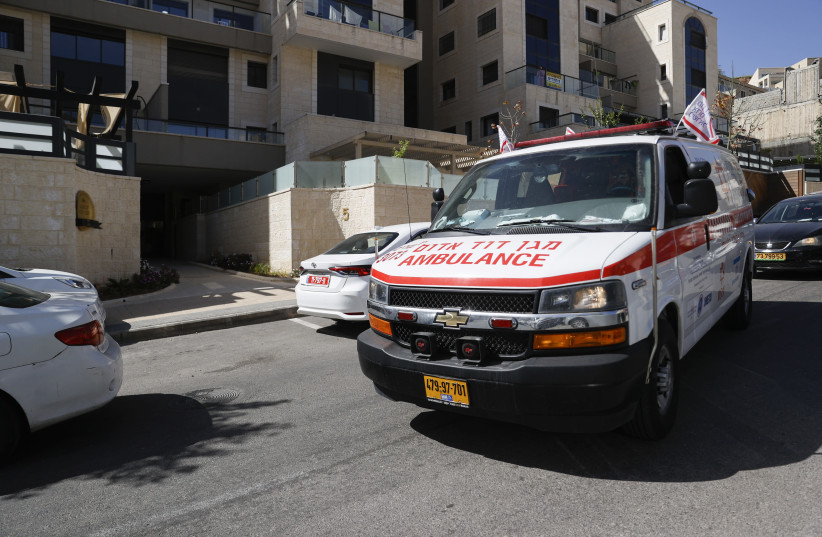Yehuda Meshi-Zahav, creator of ZAKA and alleged rapist, has died at the age of 62, a year after he attempted suicide and less than a month prior to his 63rd birthday.
One of the most well-known and colorful characters of Jerusalem’s ultra-Orthodox, anti-Zionist communities, Meshi-Zahav founded the famed medical search and rescue group, but his life was tainted by revelations of numerous allegations against him of rape, sexual assault and pedophilia.
Meshi-Zahav was an 11th generation Jerusalemite who, in his youth, headed the anti-Zionist demonstrations in the capital, and demonstrations against Sabbath violators, including throwing rocks at passing cars.
A grandson of Rabbi Yosef Scheinberger, the secretary of the Eida Hareidit Rabbinical Court, and with blood ties to the Rivlin family on his mother’s side, Meshi-Zahav was considered nobility in ultra-Orthodox circles.
He developed a special relationship with the police, despite being arrested several times after organizing anti-Zionist rallies.

A change of heart
His change of heart and attitude came in 1989 as a result of a terrorist attack on a bus traveling from Tel Aviv to Jerusalem. The attacker seized the steering wheel and the bus veered off the highway into a valley causing sixteen deaths.
Meshi-Zahav and several other young men who had been studying in a yeshiva above the highway rushed to help in the rescue operations, at which time he realized that people are people regardless of their beliefs, and that attacking them was not the way to win them over.
He also saw the need for an instant search and rescue operation that would employ religious Jewish values in saving lives where they could and honoring the dead by identifying and collecting body parts following an accident or terror attack, so that they could be buried together with the deceased.
This led him to found ZAKA, a Hebrew acronym for Zehui Korbanot Asson (Identification of Disaster Victims), which evolved from a volunteer Israeli operation on call 24/7 to an international movement that received prizes and testimonials from world leaders.
As for Meshi-Zahav, he became a Zionist. Three of his seven children served in the IDF, and in 2003 he was chosen to light a beacon on Mount Herzl on Israel Independence Day.
As adjuncts to ZAKA, he founded several other organizations to provide monetary and hands-on assistance to needy communities, especially those vulnerable to attacks from the north and the south.
Most recently, in 2018, he founded Eshet Lapidot, a women’s organization whose members were prominent business and social figures, and did not object to being photographed with them.
Over the years, he encouraged ultra-Orthodox men to serve in the IDF and was also active in bringing them into the mainstream labor force. He sat on several committees related to the police, the fire brigade, the IDF and more.
Both his parents and one of his brothers died during the height of the coronavirus pandemic.
Rape, sexual assault and pedophilia allegations
Just as it was announced that he was to be awarded the Israel Prize for his contribution to society and the state, Ha'aretz published an in-depth investigative article alleging that he was a serial sexual predator and rapist.
It later transpired that his sexual assaults on women and children were well-known in the ultra-Orthodox community, but like many other scandals, were swept under the rug.
Meshi-Zahav declined to accept the Israel Prize in response, but the allegations persisted.
Meshi-Zahav attempted suicide soon after Channel 12 came out with their report on the allegations. Although his life was saved, Meshi-Zahav never regained consciousness.
He was ultimately transferred to Herzog Hospital, where he was visited daily by his wife Batsheva and members of his family, but nearly all of his former friends and associates distanced themselves from him.
His condition continued to deteriorate, and his death was announced on Wednesday morning.
